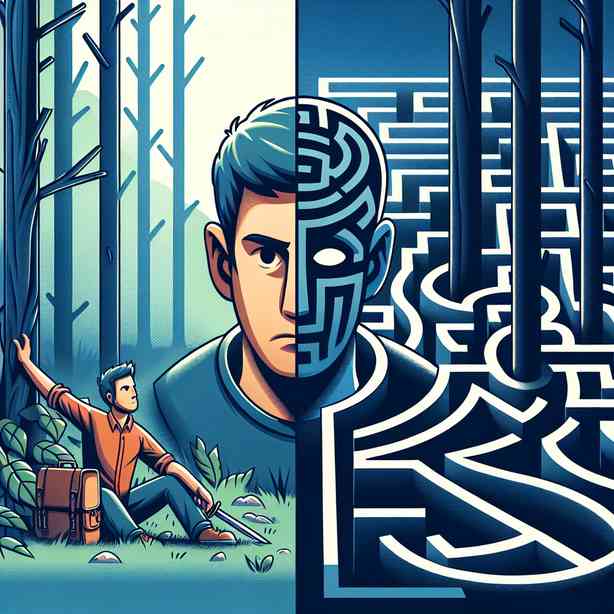
Improvisation is often perceived as a spontaneous or unplanned act, but it can transcend mere performance to become a significant aspect of one’s identity. This relationship between improvisation and identity invites thought-provoking questions. How does the practice of improvisation influence our sense of self? In what ways does it contribute to the construction of our identities in social contexts? This exploration allows us to dive deeper into the intricate layers of both improvisation and identity, adhering to the understanding that each can inform and shape the other.
At its core, improvisation is about the freedom to create in the moment. It encourages individuals to rely on their instincts, experiences, and emotions rather than predetermined scripts or guidelines. This spontaneity nurtures creativity and can lead to meaningful connections with others. When individuals embrace improvisation, they often expose themselves to new possibilities. This openness to change can extend beyond artistic expression and seep into everyday life, instilling confidence and adaptability.
The significance of improvisation in shaping our identities can be found in various cultural contexts. For example, in the world of jazz music, artists often riff off each other in real-time, creating a shared experience that reflects their unique styles yet merges into a collective identity. Similarly, theater improvisation fosters a sense of community and collaboration, where performers explore diverse roles, taking turns to express different facets of their identities. Each performance becomes an exploration of self, as actors engage with their colleagues in dynamic and unscripted ways.
Moreover, improvisation is not limited to the arts. In our daily lives, we constantly improvise, navigating unexpected challenges and interactions. Whether in conversations, problem-solving, or decision-making, our ability to respond to the present moment reveals our personal and social identities. The choices we make and the manner in which we react to others shape how we are perceived and understood. This improvised engagement builds a narrative of who we are, often reflecting our values, beliefs, and the experiences we carry with us.
Improv training, therefore, can be an empowering tool for personal development. Incorporating improvisational techniques into educational settings can foster critical thinking, collaboration, and communication skills. It encourages students to take risks, make mistakes, and learn from them. As they engage with their peers in this playful yet structured environment, their identities as learners—and ultimately as individuals—are shaped and refined.
The intersection of improvisation and identity can also be richly explored through the lens of cultural expression. Various art forms, such as dance, theater, and music, often incorporate improvisational elements that reflect cultural narratives. For instance, traditional dance forms may rely on improvised movements that showcase individual interpretations while honoring cultural heritage. In this way, improvisation becomes a medium through which cultural identities are expressed and evolved, allowing individuals to navigate their heritage while making space for personal innovation.
Community engagement is another crucial area in which improvisation becomes intertwined with identity. Many community events, such as open mic nights or collaborative art projects, allow individuals to share their voices in an impromptu setting. Such opportunities nurture an environment where diversity is celebrated, and participants feel empowered to express their unique perspectives. In these contexts, improvisation becomes a catalyst for identity exploration—not only for the individual but for the wider community, fostering connections that bridge differences.
The psychological aspects of improvisation also merit consideration. Engaging in improvisational practices can enhance our emotional resilience and self-awareness. When individuals embrace uncertainty and the unexpected, they often cultivate a greater sense of agency in their lives. Each improvisational encounter becomes a chance for introspection and growth, allowing actors in their own lives to refine their identities actively. This dynamism can lead to more authentic connections with oneself and others, reinforcing the idea that our identities are not static but continuously evolving.
Furthermore, the ability to improvise allows individuals to challenge societal norms and expectations. When we step outside predefined roles, we can redefine what it means to belong, to succeed, or to express oneself. By rejecting rigid definitions imposed by society, those who engage in improvisation can carve out spaces for themselves where their identities can flourish without constraints. This liberation fosters creativity and innovation—essential ingredients for thriving in an ever-changing world.
It is important to recognize that not every attempt at improvisation is met with success. Just as improvisation can lead to remarkable moments of connection and creativity, it can also reveal our vulnerabilities. This duality highlights the importance of embracing failure as part of the improvisational journey. When we allow ourselves to be imperfect and to learn from our missteps, we deepen our understanding of who we are and what we can become.
As we navigate the interplay between improvisation and identity, it becomes clear that these concepts are deeply interrelated. Improvisation, with its emphasis on spontaneity and authenticity, invites us to explore our identities in multifaceted ways. Through artistic expression, cultural engagement, community interaction, and personal growth, we can uncover the rich tapestry of experiences that shape who we are.
The journey of discovering how improvisation weaves into our identities is both individual and collective. Each person’s story is unique, yet we can find common threads through shared experiences with improvisation. Embracing this exploration can foster understanding, empathy, and connection among diverse individuals, reflecting the beauty of our shared humanity.
In conclusion, improvisation transcends the realm of performance, becoming a vital component of our identities. As we engage in the spontaneous act of creation—whether in art, daily interactions, or community participation—we actively shape and redefine who we are. This fluidity allows us to be both the creators and the subjects of our narratives, enriching our experiences and deepening our connections. By embracing the mysteries of improvisation, we open ourselves to a world of possibilities that reflects the complexity and beauty of our ongoing journey.


